On October 17, more than 60 leaders in digital health worked together at Caltech in Artificial Intelligence Los Angeles (AI LA)’s inaugural Life Summit 2019. This vibrant group brought artificial intelligence, machine learning, and design thinking to bear on some of healthcare’s most complex challenges.
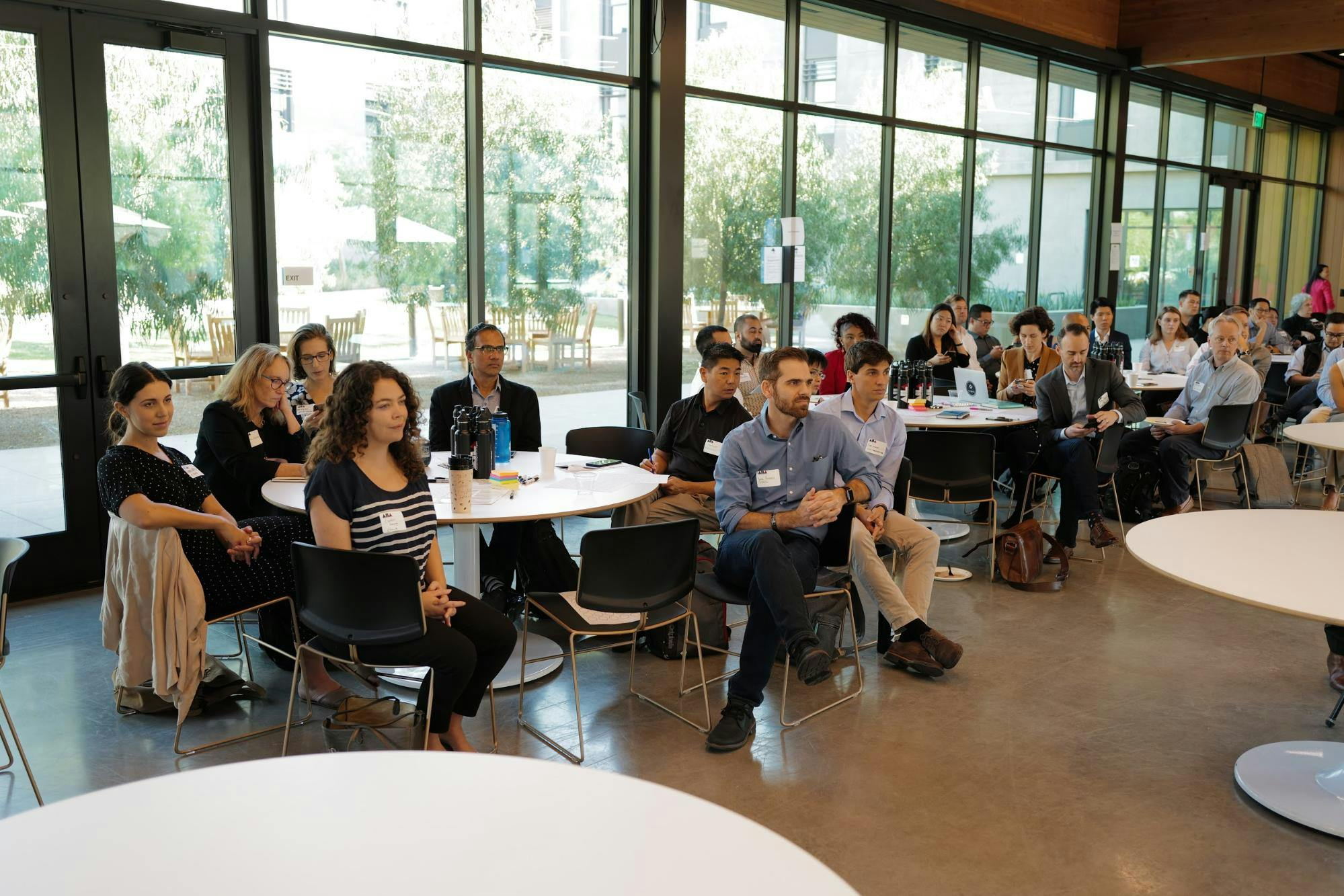
Vynyl was honored to participate in and to sponsor the invitation-only event with Caltech, ArtCenter, and Innovate Pasadena. The group included data engineers, physicians, chief technologists, social workers, product developers, entrepreneurs, and patients who are living with or have survived serious health conditions. Ian Harris was joined by Erick Herring, Nicole Harris Roberts, and Morgan Stevenson from Vynyl’s executive team.
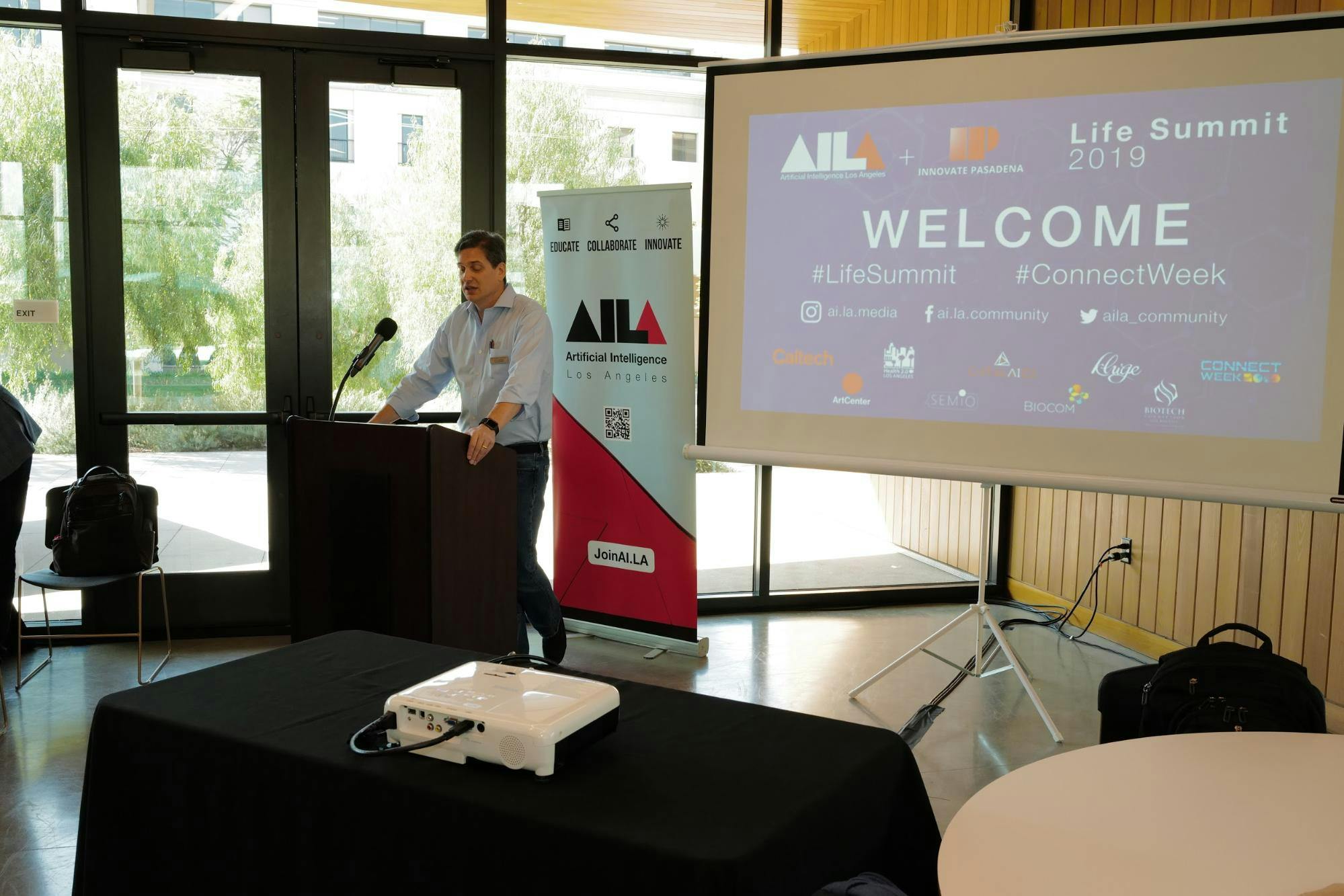
Each working group was led by one of seven healthcare organizations, including HMRI-Huntington Medical Research Institutes, Doheny Eye Institute, Cedars-Sinai, Kaiser Permanente, Children's Hospital Los Angeles, Harbor-UCLA Medical Center, and the National Association of Social Workers/CA Technology Council. Wen Dombrowski and Nardo Manaloto of Catalaize facilitated the program. Indu Subaiya MD from Catalyst @ Health 2.0 keynoted the event.
“It's incredible how you can meet strangers, brainstorm, design and present a product from soup to nuts all in a single day!”
-Daniel Stieglitz, founder and CEO of Stainless AI, Inc.
The day started with local healthcare systems such as Kaiser Permanente and Cedars-Sinai sharing challenges that their organizations are facing. Using a foundation of design thinking concepts, the day involved exercises marrying AI with business strategy, user insights, and new and emerging technology solutions to propose new concepts for healthcare solutions.
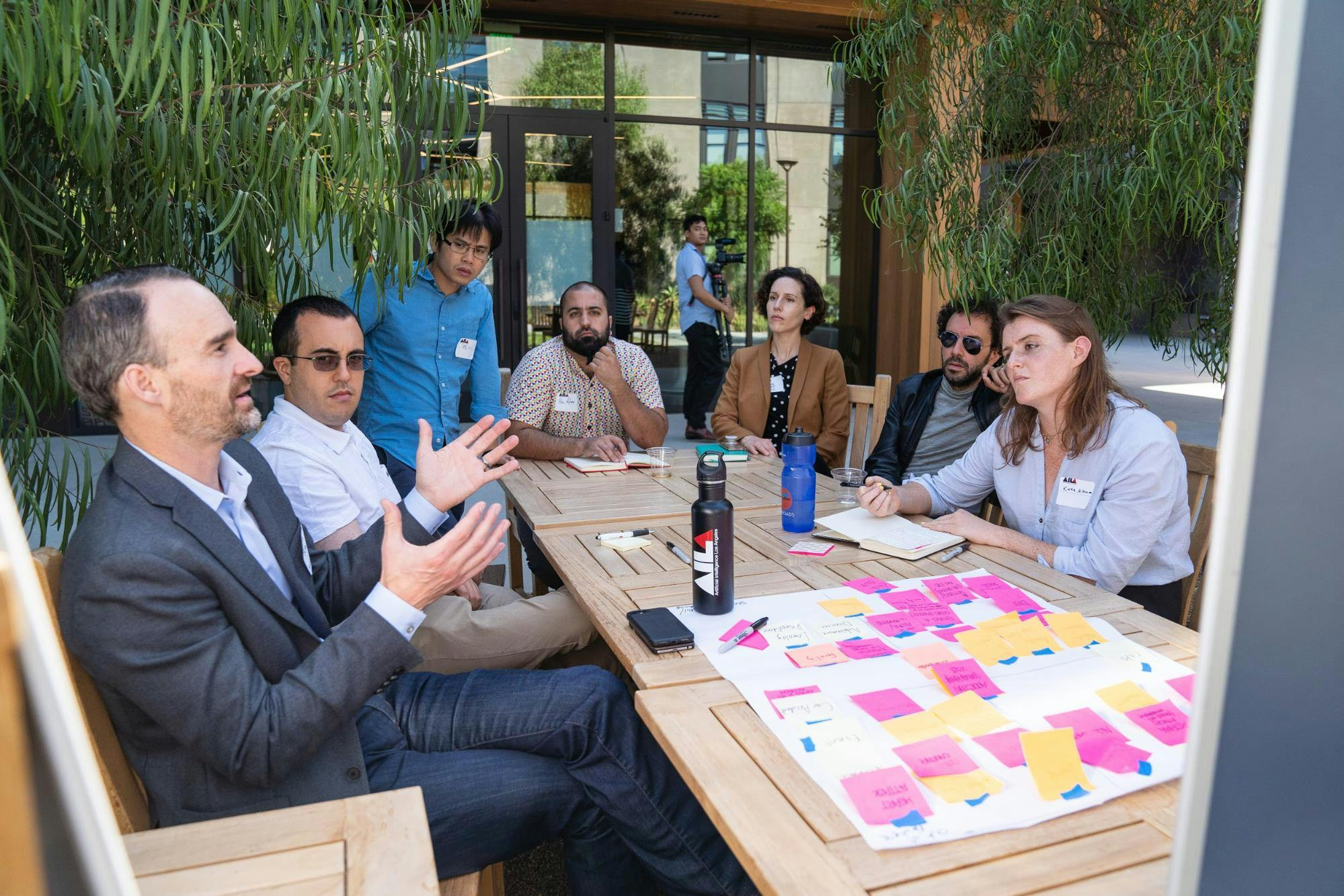
The working groups tackled a range of challenges, including reducing physician burnout, improving Medicaid transition from childhood to adolescence, using AI to predict and nudge patients with health interventions, and the FDA's proposed rules for regulating artificial intelligence and machine learning in medical devices. The working groups viewed these problems at all angles and posed tough questions for discussion, including:
- How can we improve explainability in medical devices that use natural language processing?
- What makes an AI/ML tool more useful for clinicians, and how can we get to a place where they not only understand what’s presented, but they also trust it?
- Are clinicians ready for a world in which the intended use of AI/ML software is not only to help them decide on a diagnosis or next step, but to make a decision for them?
- When will large health systems be able to incorporate data insights into patient care the way that Forward Health and others are doing now?
- How do we structure health interventions in a way that influences the member, but also provides the right nudges to other people in the member’s life, such as a spouse or care giver?
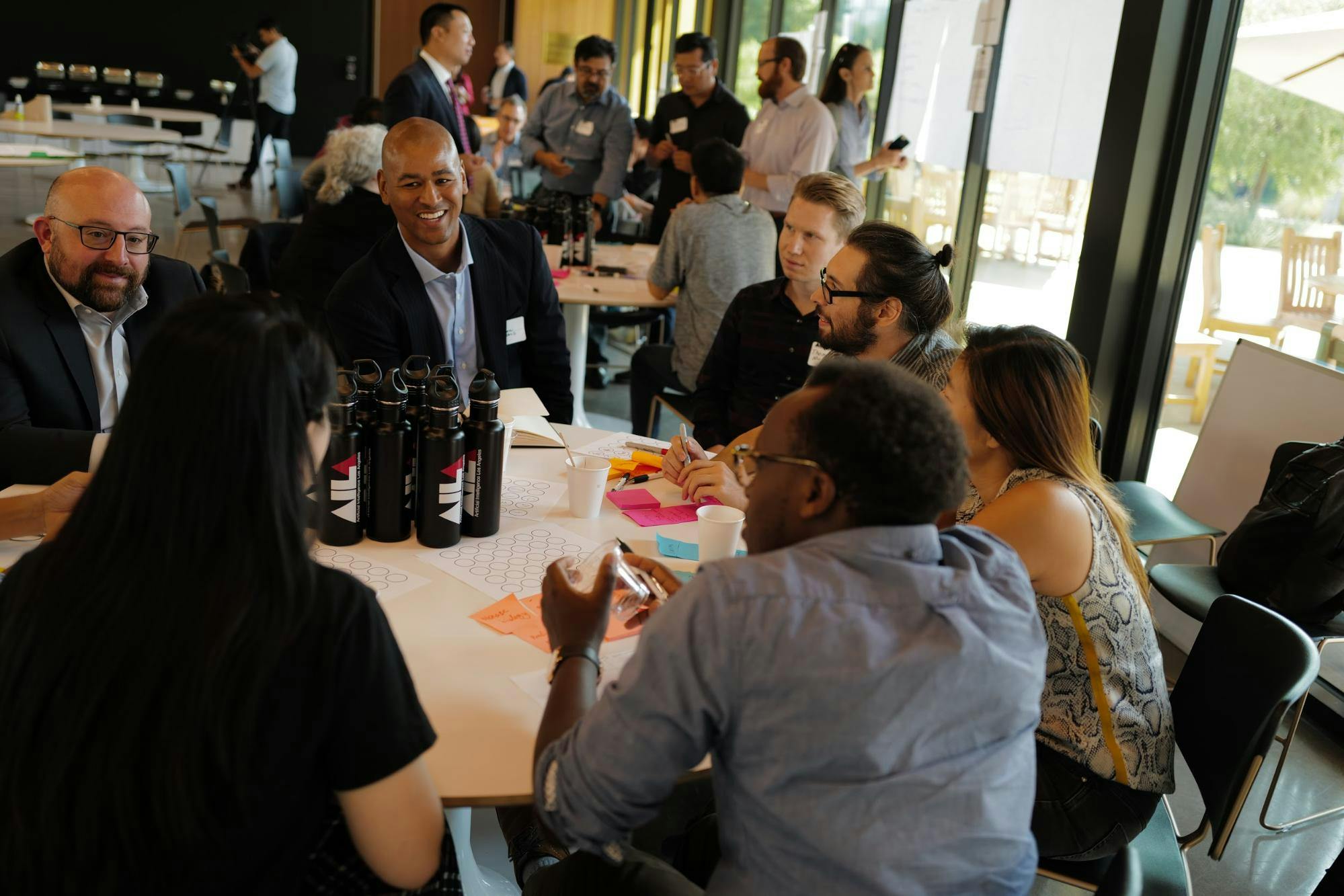
Design thinking is a concept that Vynyl and other organizations use to keep the end user at the center of the product, service, process, and strategy. Life Summit groups engaged these methods to distill complex problems into innovative, user-focused solutions.
In an effort to reduce physician burnout due to clunky EHR software, one team developed a concept to transform how doctors can utilize AI, freeing them up to spend more time face-to-face with patients. From napkin sketch to presentation, the exercises engaged teams with diverse backgrounds to fully understand the needs of both doctor and patient—ultimately generating a solution that could resolve many frustrations in healthcare settings.
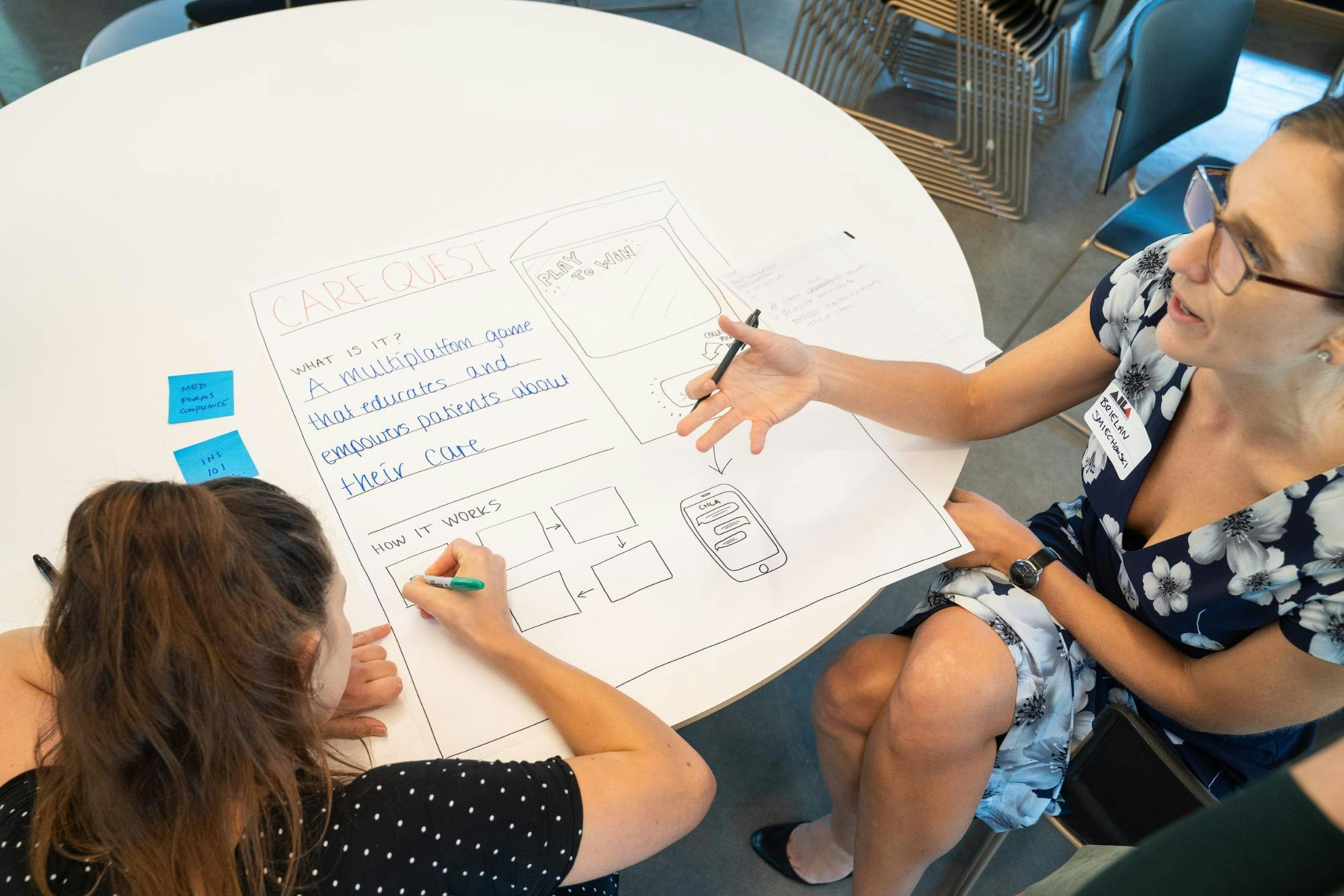
All of the working groups presented their final concepts on stage at the end of the day.
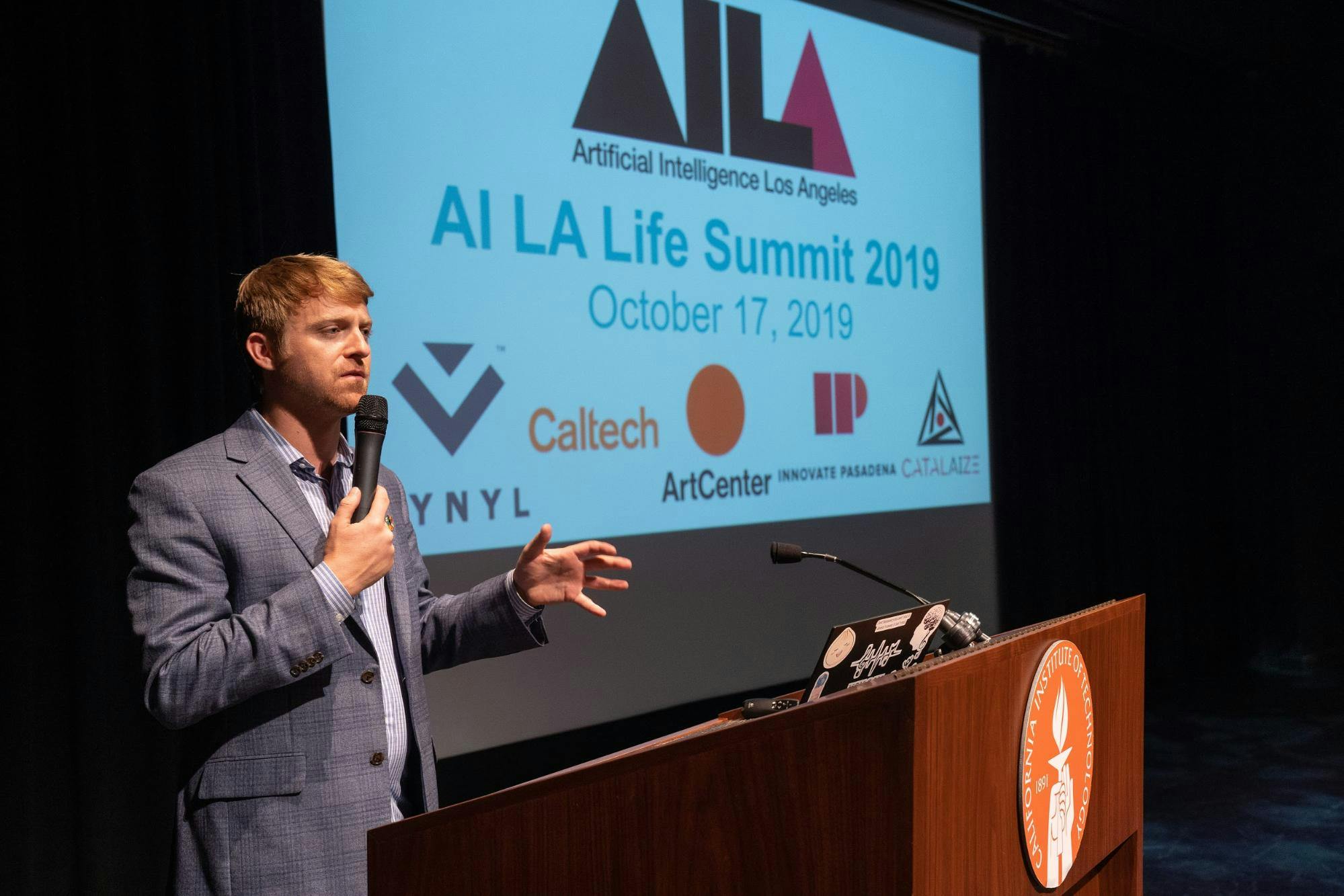
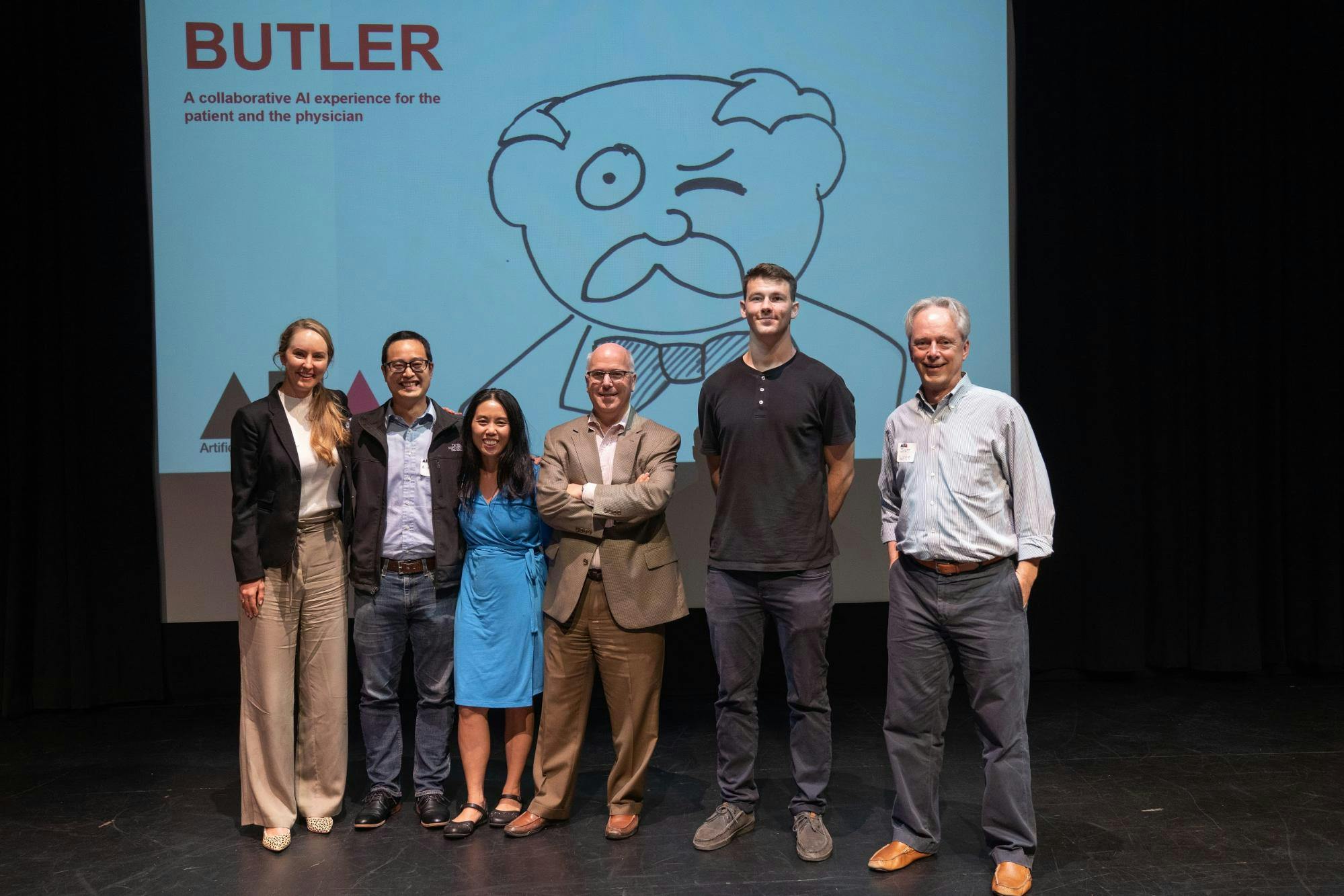
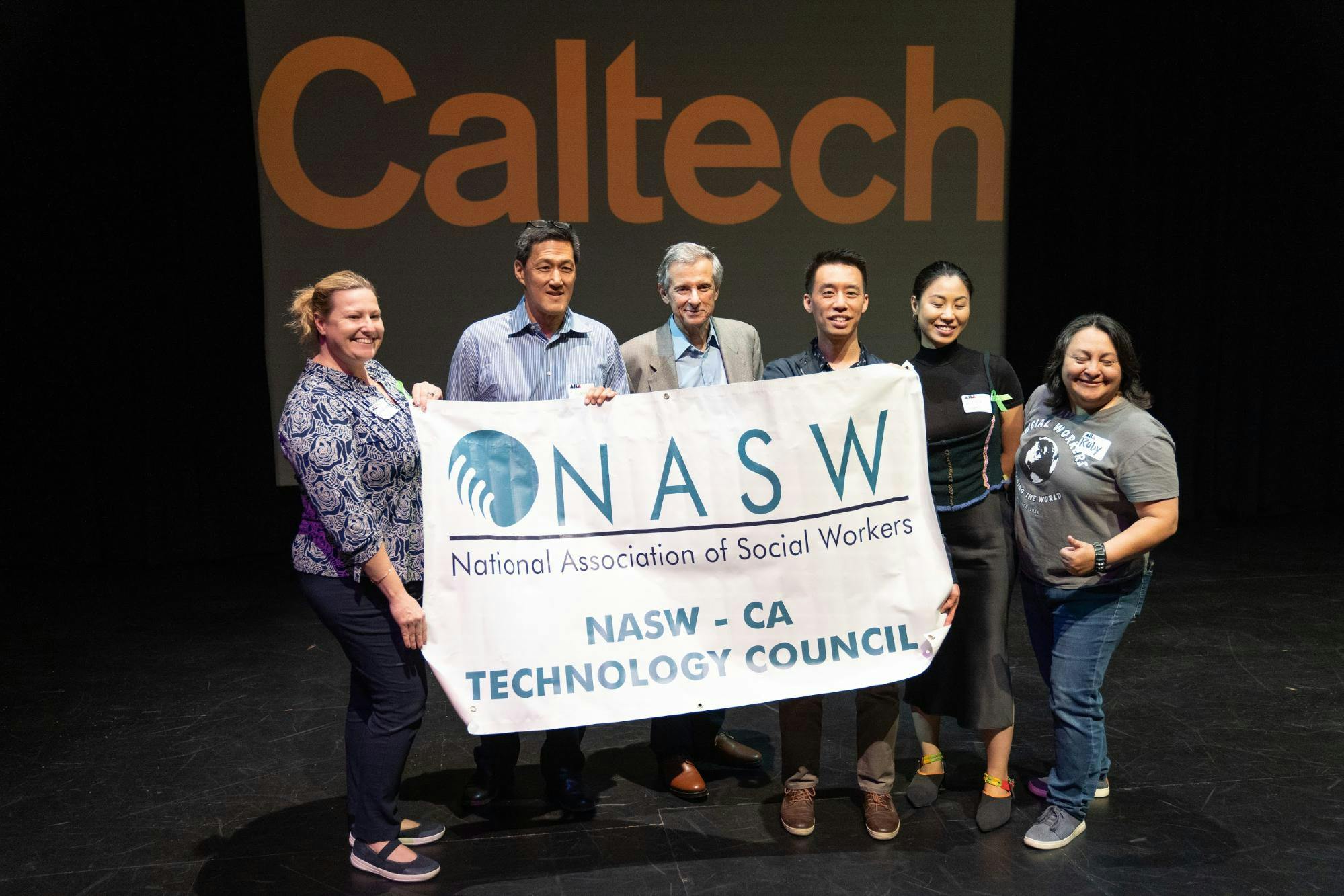
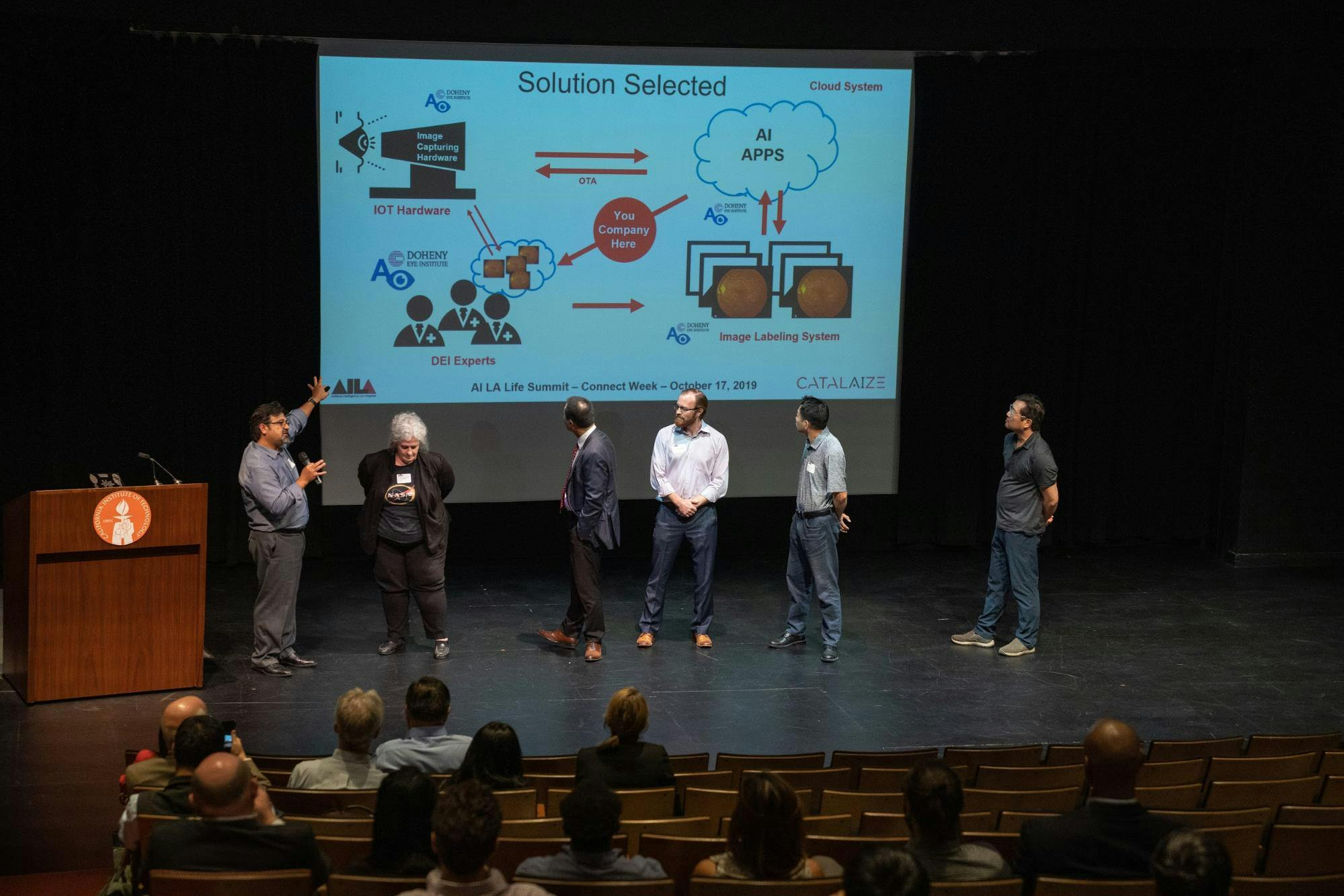
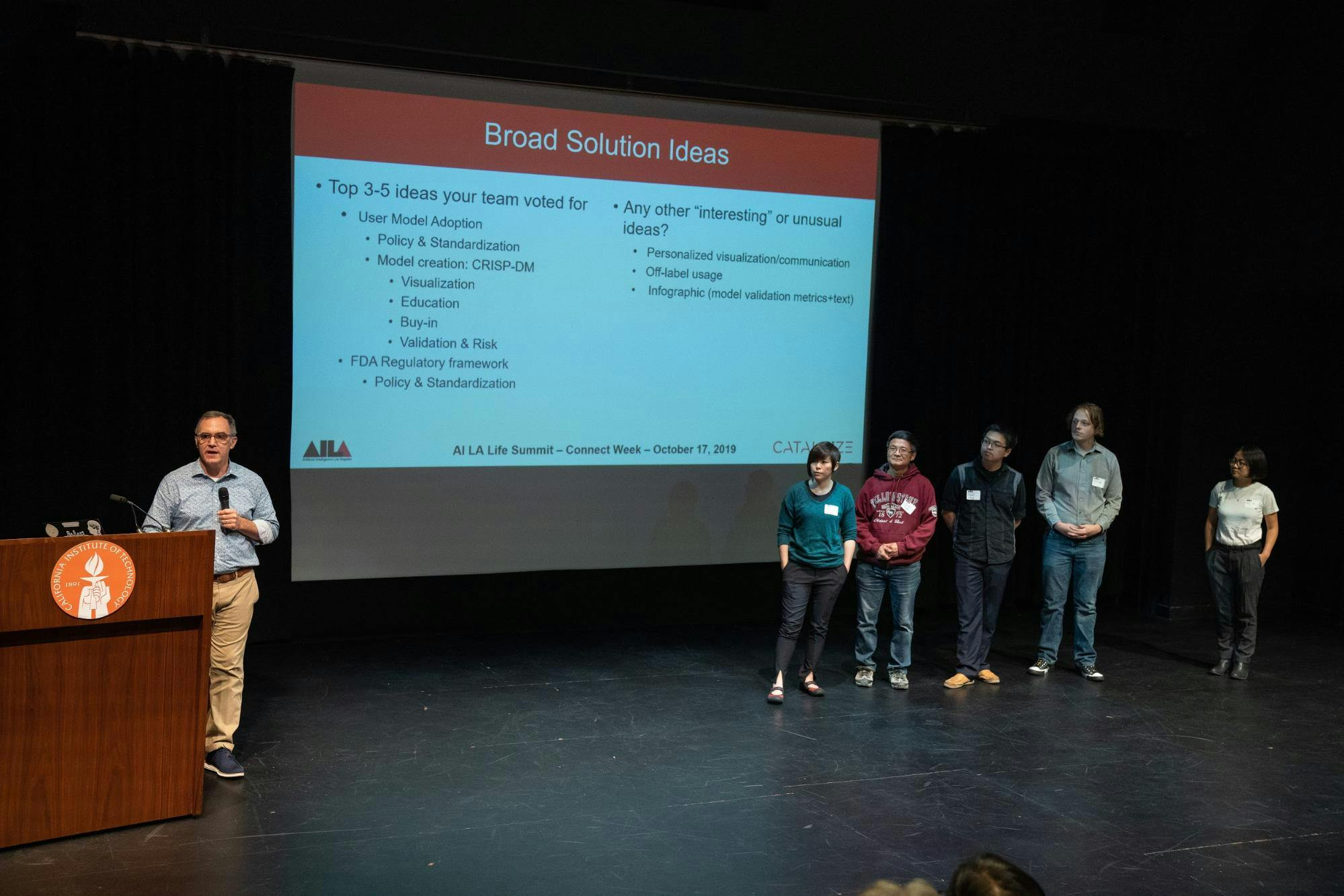
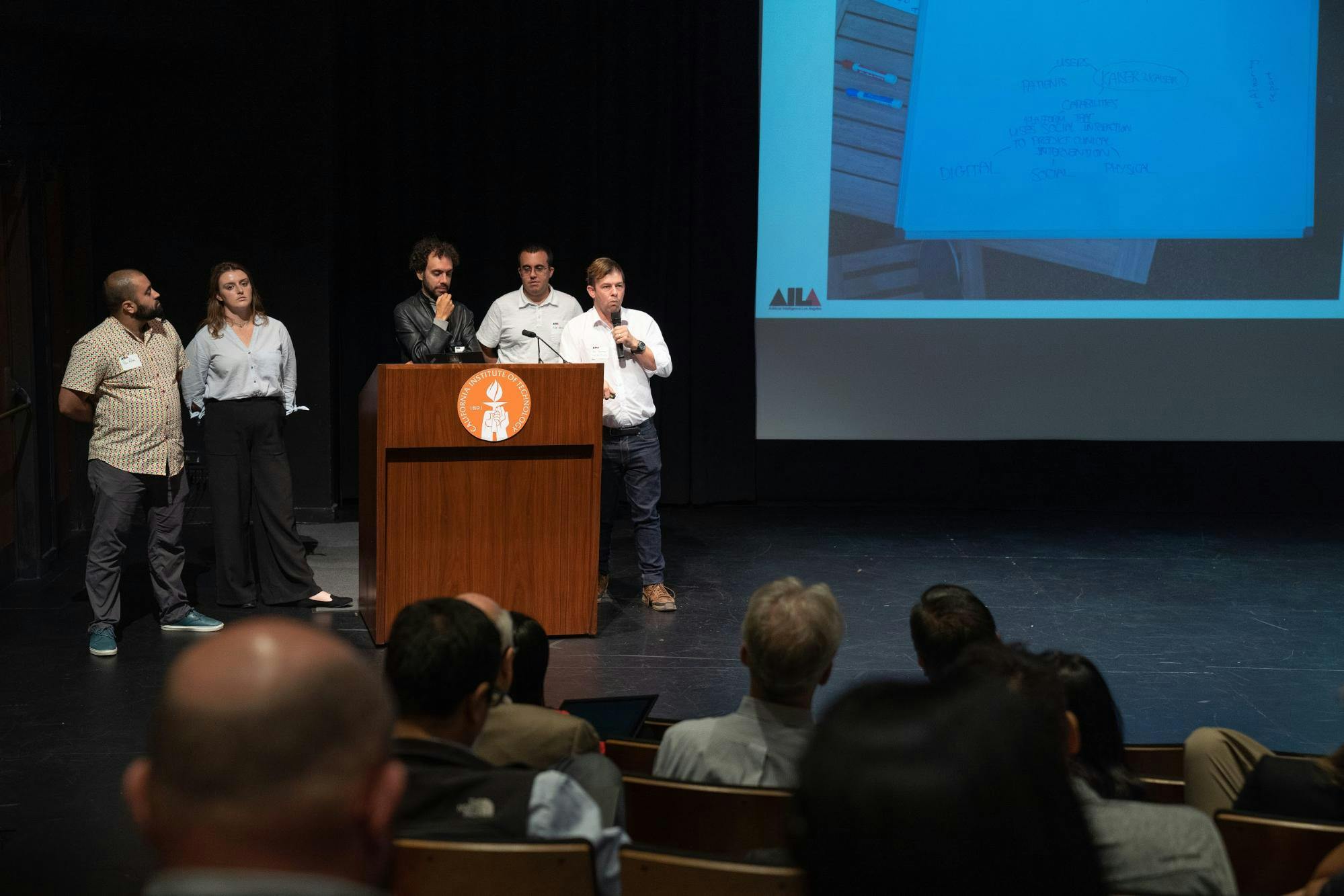
Life Summit demonstrated that increasing collaboration across healthcare organizations and among AI technology experts speeds up the process of generating the most compelling ideas that can change healthcare. Utilizing design thinking and rapid prototyping, teams inspired each other to generate seven product concepts in a single day. Design thinking allowed us to capture the braintrust of the clinicians, career professionals, technologists, and healthcare consumers in the room and reimagine what is possible.
The real test will be to check in over the next year or decade to see how Life Summit participants are utilizing the tools and ideas that we generated this year. We’re looking forward to returning for Life Summit 2020 to find out.
“Innovation happens when disciplines, ideas, and cultures intersect. 95% of everyone here is volunteering their time to help these large organizations look at their internal challenge through the lens of an outsider.”
- Todd Terrazas, founder and president of AI LA
Artificial Intelligence Los Angeles (AI LA) is a volunteer-led community of cross-disciplinary stakeholders with more than 6,000 members who represent the science, technology, engineering, arts, and mathematics (S.T.E.A.M.) communities of the Greater Los Angeles (LA) area. They explore artificial intelligence, machine learning, and other frontier technologies, and the impacts they will have on humanity by hosting regular activities throughout the year. It’s their mission to catalyze innovation through education, conversation, and collaboration.
Vynyl was the platinum sponsor of the inaugural Life Summit 2019.